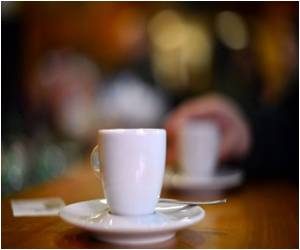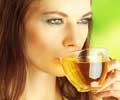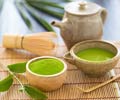
Consumer products giant Unilever’s Lipton unit splashes the trademarked phrase "Tea Can Do That" liberally on the health sections of its websites. On its Web page titled "Heart Health Research," Lipton says,
"Four recent studies in people at risk for coronary disease have shown a significant cholesterol lowering effect from tea or tea flavonoids ... One of these studies, on post-menopausal women, found that total cholesterol was lowered by 8% after drinking 8 cups of green tea daily for 12 weeks ...." Lipton says with regard to its Green Tea 100% Natural, Naturally Decaffeinated.
The FDA is now warning Lipton, "The therapeutic claims on your website establish that the product is a drug because it is intended for use in the cure, mitigation, treatment, or prevention of disease. Your Lipton Green Tea 100% Natural Naturally Decaffeinated product is not generally recognized as safe and effective for the above referenced uses and, therefore, the product is a "new drug" under section 201(p) of the Act [21 U.S.C. § 321(p)]. New drugs may not be legally marketed in the U.S. without prior approval from FDA as described in section 505(a) of the Act [21 U.S.C. § 355(a)]. FDA approves a new drug on the basis of scientific data submitted by a drug sponsor to demonstrate that the drug is safe and effective."
The agency has also questioned the antioxidant claims of Lipton.
Separately, the agency sent a similar letter to the Dr. Pepper Snapple Group criticizing the company for its marketing of Canada Dry Sparkling Green Tea Ginger Ale.
Advertisement
The agency asks executives from both companies to respond to the citations within 15 days and to outline their plans for addressing the problems.
Advertisement
A recent study showed that bottled tea contains pathetically low levels of antioxidants and polyphenols, for which properly brewed tea is famous. Scientists found that in order to get the same benefit as one would obtain from a single cup of brewed tea, sometimes the consumer may have to drink 20 bottles of bottled tea.
Not only is bottled tea generally very poor in health-improving ingredients for which brewed tea is well known, but it commonly has unhealthily high levels of sugar and other additives - substances most health conscious consumers are trying to keep away from, experts note.
Once a niche market, nutrient-enriched beverages have grown into a multibillion dollar business that includes everything from calcium-enhanced orange juice to energy drinks containing ginseng, ginkgo and other organic products.
In recent years, the FDA has begun cracking down on food companies that overstate the benefits of their products.
Source-Medindia














